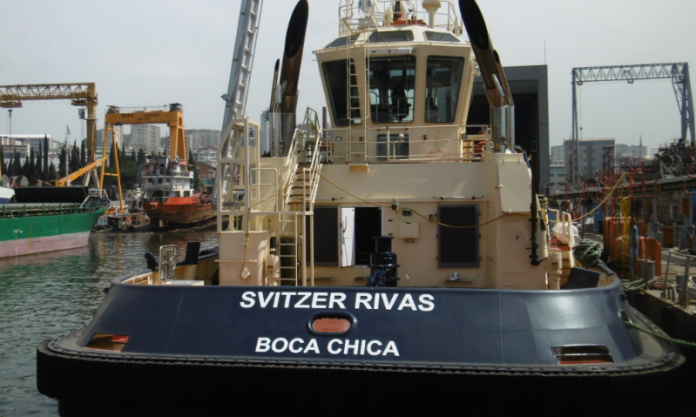Maersk’s towage subsidiary, Svitzer has announced its decarbonisation strategy aiming to become fully carbon neutral by 2040.
The decarbonisation strategy of Svitzer is split into two phases. Firstly, Svitzer is aiming to reduce the CO2 intensity of its entire fleet by 50% by 2030.
As part of the strategy, Svitzer will invest time and capital to embed sustainability throughout its business, in day-to-day operations, in people and how they do their jobs, in its fleet and through the types of fuel used by its vessels.
Svitzer will measure progress against a 2020 baseline, which saw the company’s fleet of approximately 400 vessels emit 280,000 tonnes of CO2, or the same amount as 110,000 cars.
Svitzer has already implemented process changes to help spur improved efficiency across its fleet, such as the company’s ‘Aim for 8’ initiative, which asks crew members to optimise their speed during tug mobilisation and demobilisation and has saved over 255 tonnes of Marine Gas Oil (Diesel) in the United Kingdom alone.
“We have split our strategy into three pillars: behaviour, equipment, and fuel, and we will focus on each of these in a step change fashion to bring about carbon neutrality in a way that works for our customers,” pointed out Gareth Prowse, head of decarbonisation at Svitzer.
The company added it will also focus on changing the fuel mix of its fleet. The success of the organisation’s EcoTow project, which has seen Svitzer’s entire fleets in London, Felixstowe, and Southampton in UK switch to low carbon biofuels, is currently being replicated more widely across ports in the country and to the company’s global operations.
Svitzer will also begin to explore methanol as a fuel for towage and, in the long-term, take required steps to retrofit and renew its fleet in order to operate on low carbon fuel solutions.
Finally, Svitzer will focus on improving the efficiency of its fleet from a design perspective. As part of this, the company will launch its new and innovative TRAnsverse Tug design, which can generate high steering forces with a reduced environmental footprint. The Robert Allan design will come into operation from the third quarter of 2023.
Commenting on the decarbonisation strategy, Kasper Nilaus, CEO, Svitzer, said, “We are not committing to these ambitions lightly and understand that it will require leadership and collaboration with our customers, suppliers, industry peers, and ports around the world to ensure success. Widespread changes and investment into the way we work, the fuel we burn, and the composition of our fleet will be required.”







